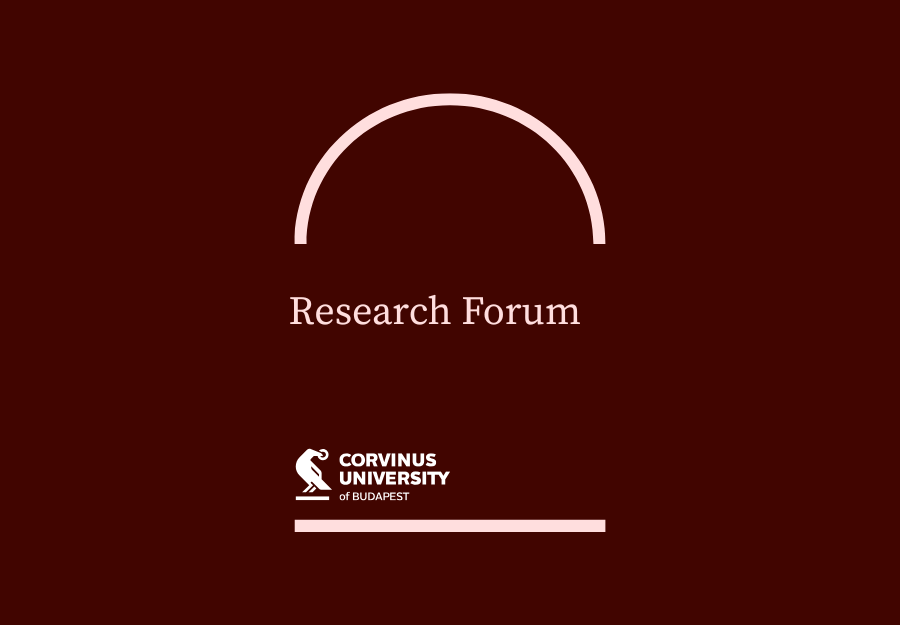
Sociology & Communication PhD Research Forum
The Sociology and Communication Doctoral School’s Research Forum is a gathering for PhD students to share their research, connect with peers, and receive valuable feedback.
The main goal of the Communication Science Doctoral Program is to prepare students for individual research on both theoretical and applied aspects of communication, understood in a broad sense. The program emphasizes an interdisciplinary approach, by offering a wide range of research topics that span across communication and media science and its related disciplines, including visual arts, anthropology, stylistics and rhetorics, cultural studies, linguistics, political science and behavioural science.
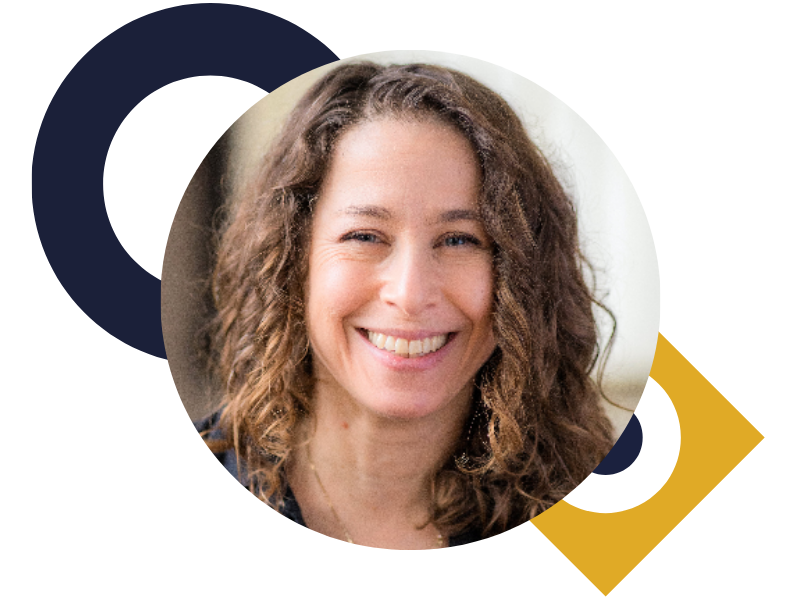
Head of Doctoral Program
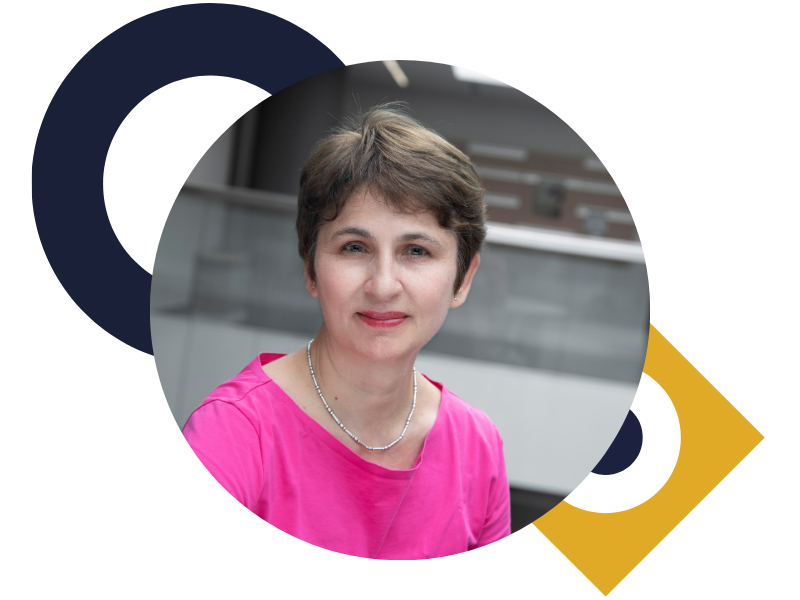
Head of Doctoral School

The Sociology and Communication Doctoral School’s Research Forum is a gathering for PhD students to share their research, connect with peers, and receive valuable feedback.
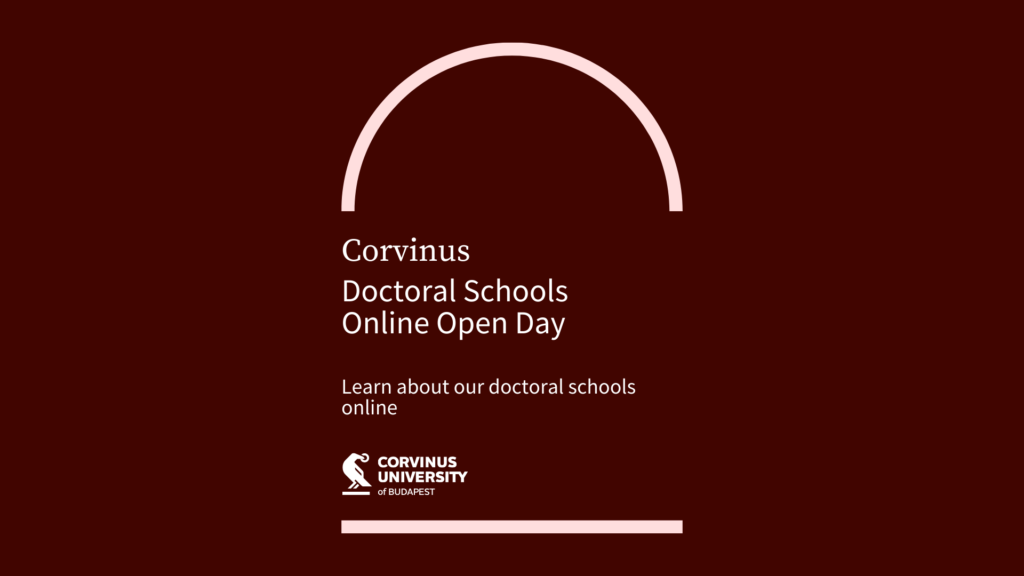
Are you interested in a PhD? Do you have questions about admissions? Join our Online Open Day, where the heads of our doctoral schools will share their insights and we will answer your questions!
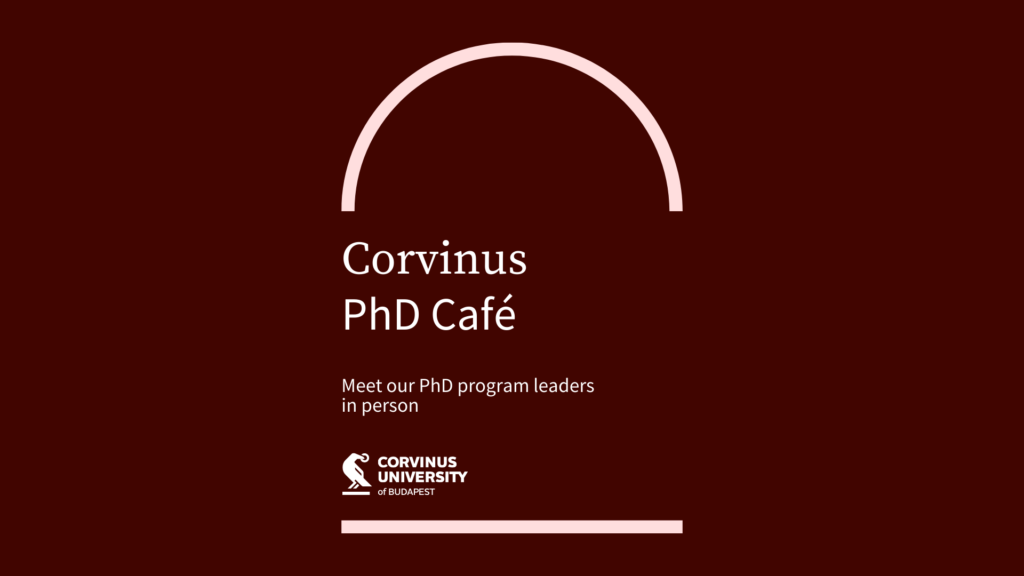
Subscribe to our newsletter to automatically receive the latest information on postgraduate studies and admissions!
Communication – whether verbal, non-verbal, written or visual – affects every aspect of our lives. We constantly communicate and are constantly being communicated to. If you’re interested in how and why this happens, then this is the doctoral program for you! Join our COMMunity of dedicated scholars and young researchers!
• Applicants are required to submit a research plan in English. Interviews are conducted in English.
• Length of the research plan: min. 10,000 and max. 20,000 characters, including references.
• If an applicant selects both the Communication Science Doctoral Program and the Sociology Program, the Head of the DS and the Admission Boards decide which track is competent to conduct the admission procedure. If both programs are deemed competent, the applicant may participate in both admission procedures.
• Platformization and the cultural industries – Tamás Tófalvy
Cognition, language and communication
• Metaphor and metonymy in discourse and communication – Réka BENCZES
• Factors influencing memory for media messages – Gábor KOVÁCS
• The effects of non-verbal signals on thinking, speech and attention – Gábor KOVÁCS
• Linguistic creativity in social media discourse – Réka SÓLYOM
Digitalization and social media
• Discourses about disruptive technologies – Tamás BOKOR
• New challenges in the enhancement of digital competences – Tamás BOKOR
• Individual and society in digital network media – Tamás BOKOR
• Social media and their effects on society and human behaviour – Lajos KOVÁCS
• Conceptual integration in social media communication – Réka SÓLYOM
• Innovative forms of science communication – Ágnes VESZELSZKI
• Deception and manipulation in digital communication – Ágnes VESZELSZKI
• AI and linguistics – Ágnes VESZELSZKI
Social, organizational and marketing communication
• The role of interpersonal communication in collective judgement and decision making – Gábor KOVÁCS
• Organisational communication in a changing landscape – Lajos KOVÁCS
• Green and sustainable marketing communication: Linguistic and non-linguistic devices – László KOVÁCS
• Brand names, brand associations and positioning – László KOVÁCS
• Linguistic devices in marketing communication and branding – László KOVÁCS
• Alternative solutions to exploring and communicating social problems – Ariel MITEV
Visual and design communication
• Design communication as a social and economic catalyst: Making research as designing – Dóra HORVÁTH & Attila COSOVAN
• Visual communication in social media – Andrea KÁRPÁTI
• Fashion communication: history and current trends – Andrea KÁRPÁTI
• Current trends in visual communication: new genres, technologies and meaning making in communicating through images – Andrea KÁRPÁTI
• Exhibition communication: visitor studies, experience design, science communication, multilevel assessment of museum / gallery / commercial exhibitions – Andrea KÁRPÁTI
Since 2015, fifty-four doctoral students have successfully defended their doctoral thesis in the Communication Science Doctoral Program and its predecessor, the Social Communication Doctoral School. Meet our graduates!
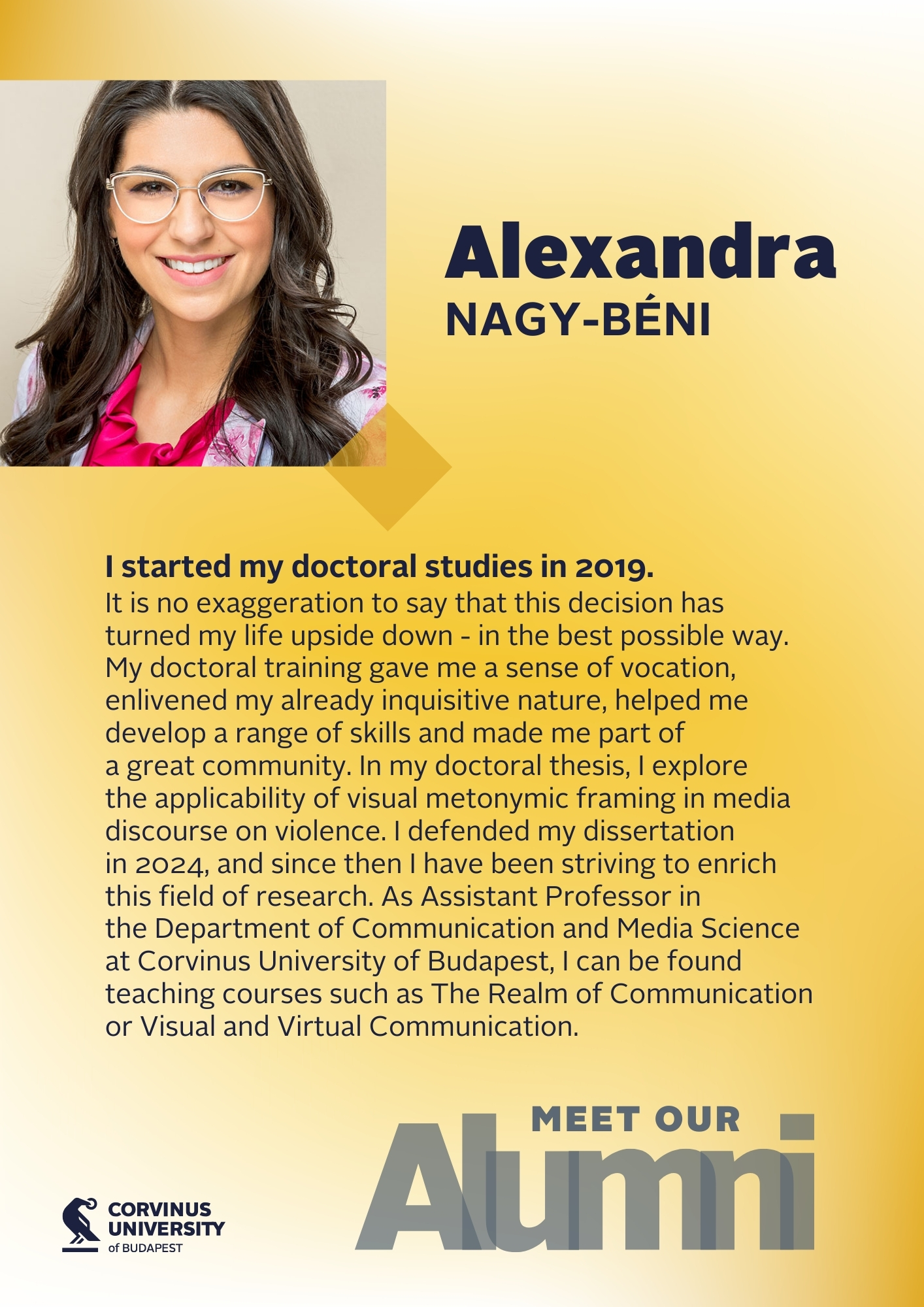
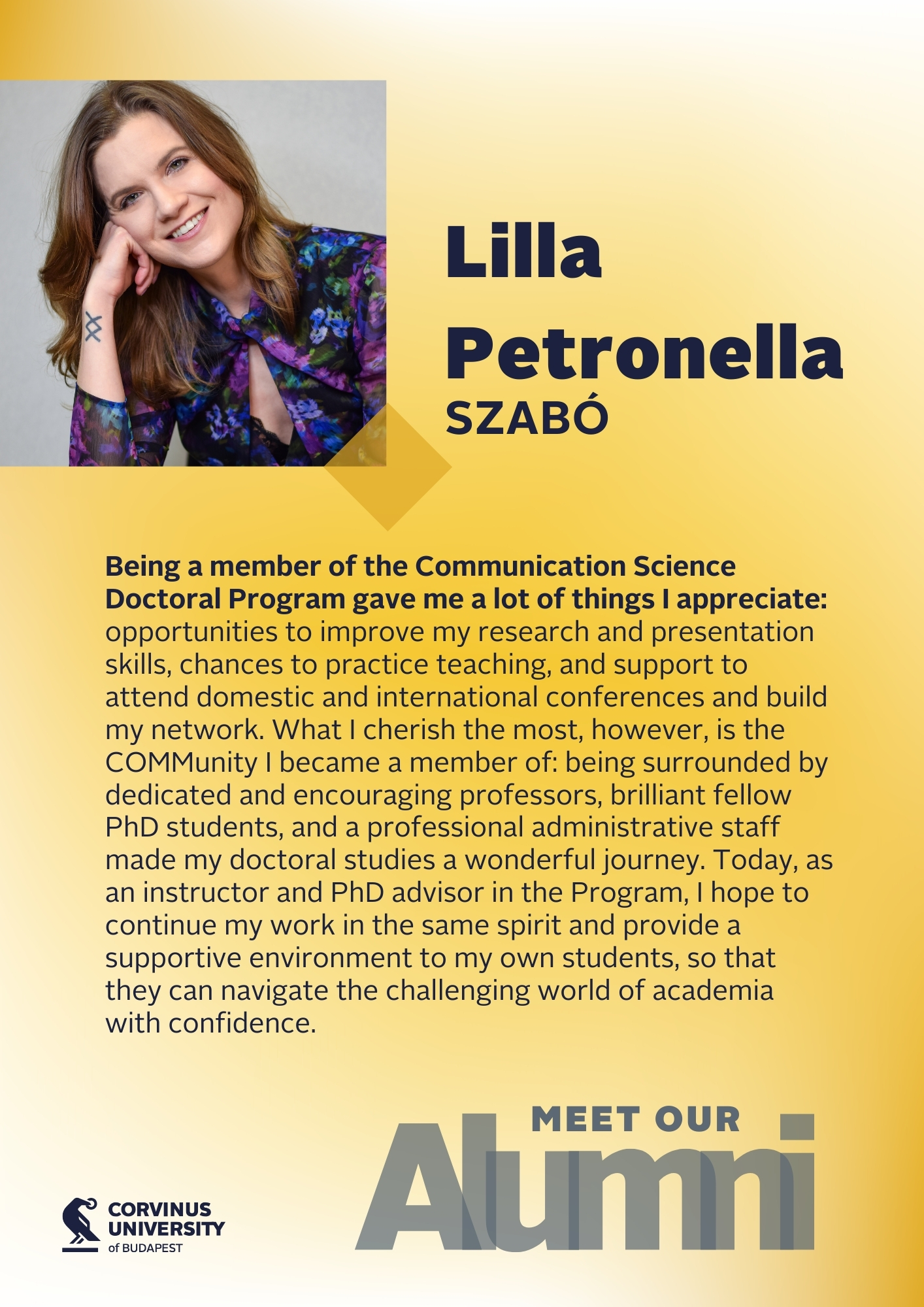
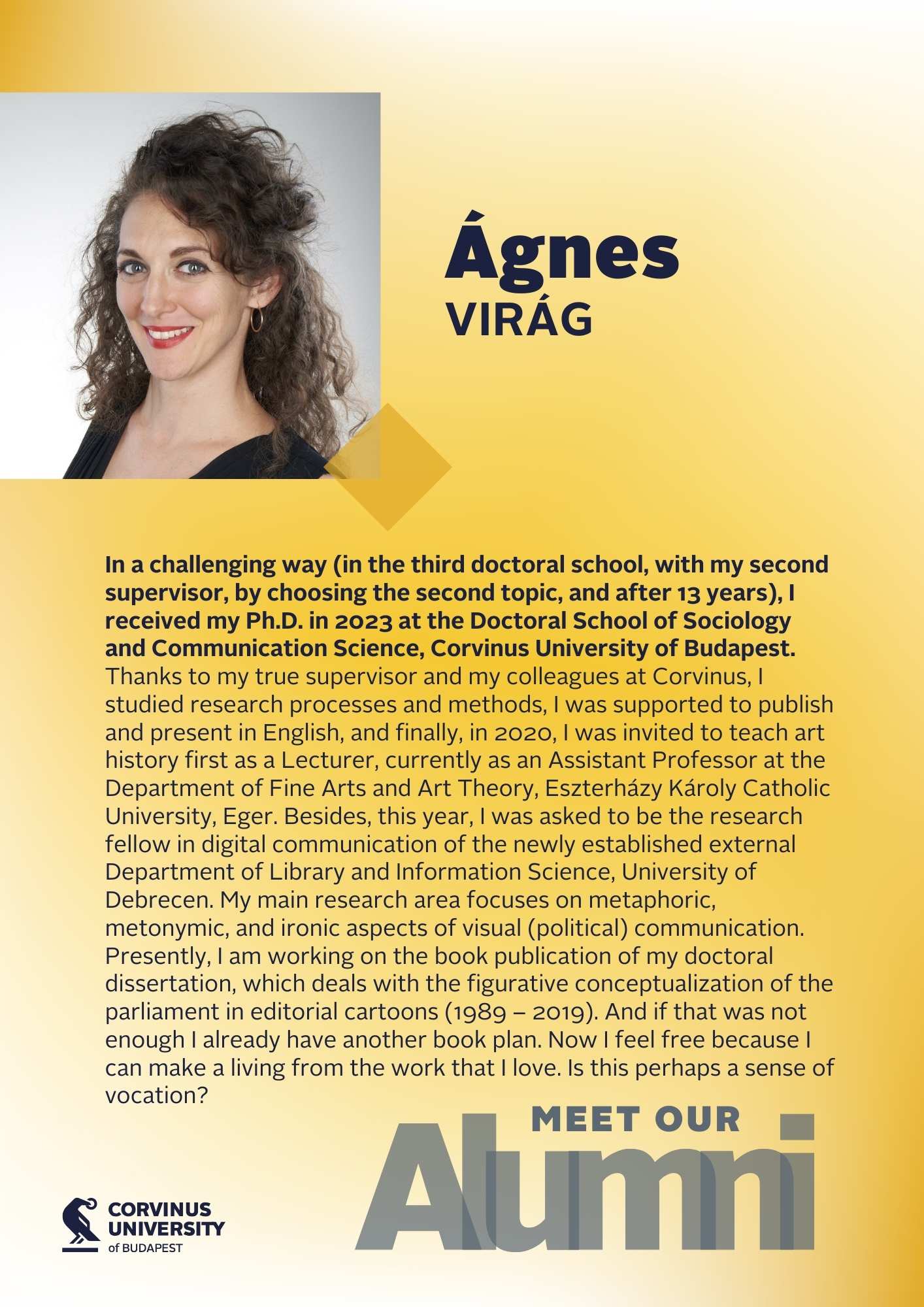
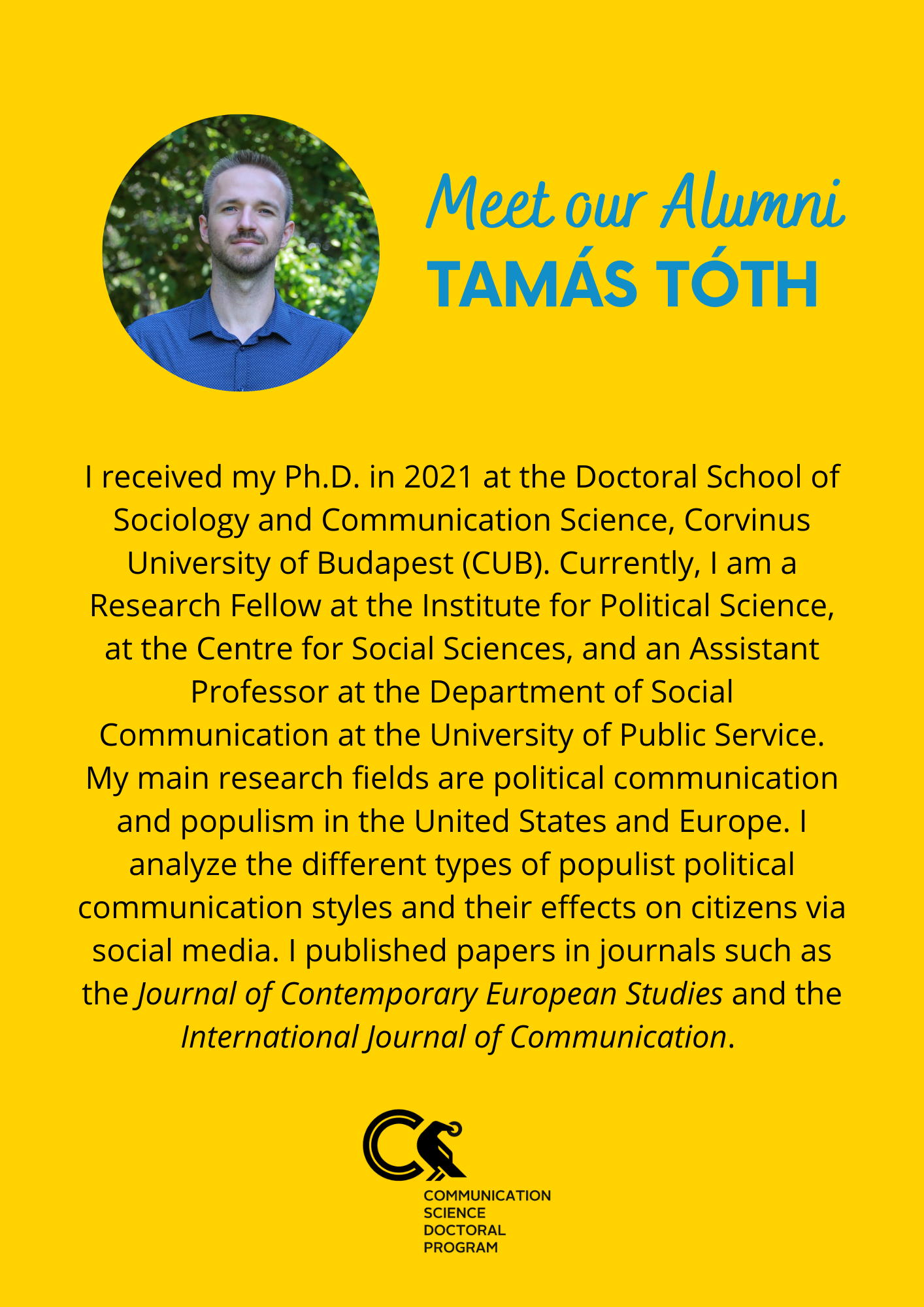
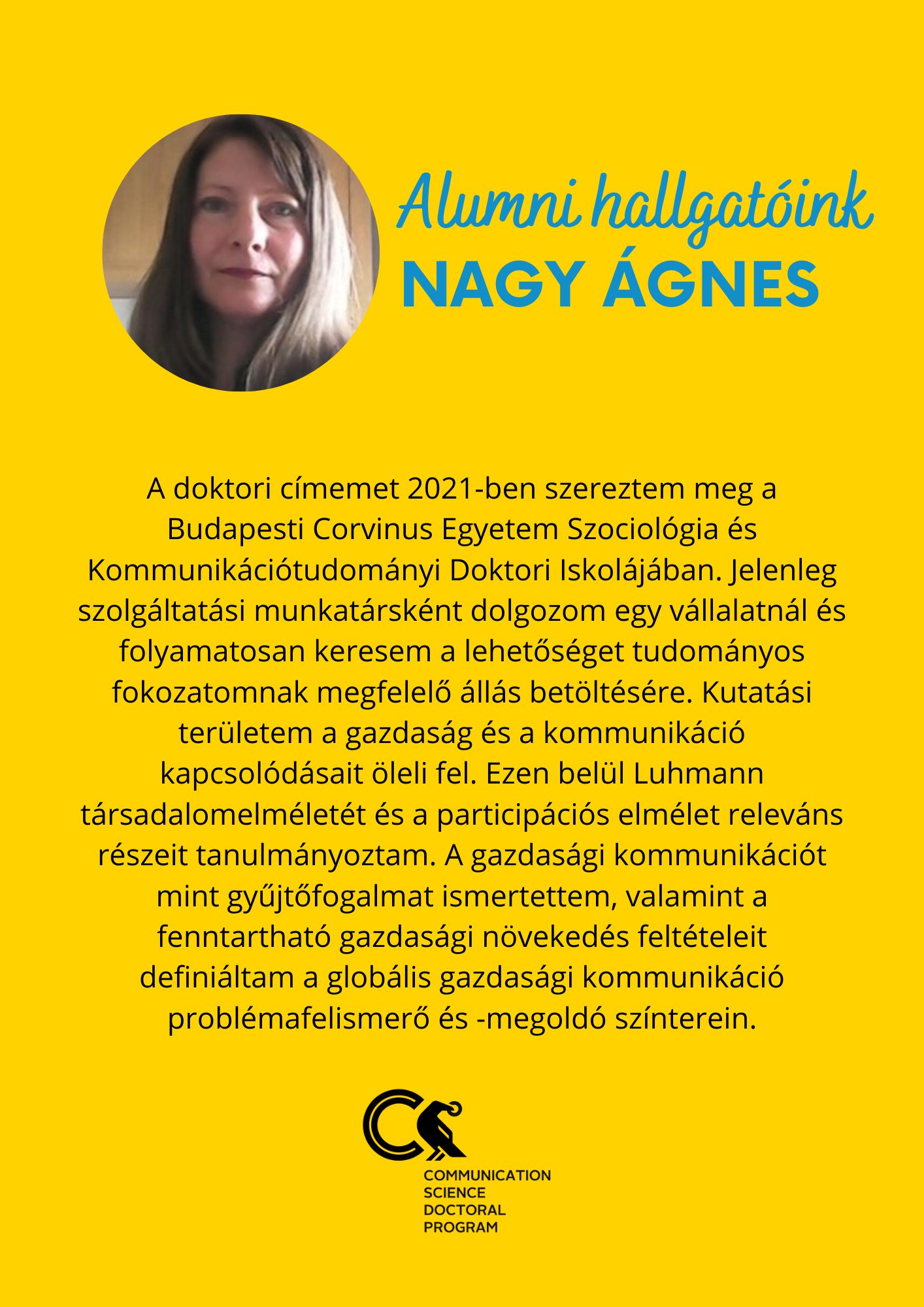
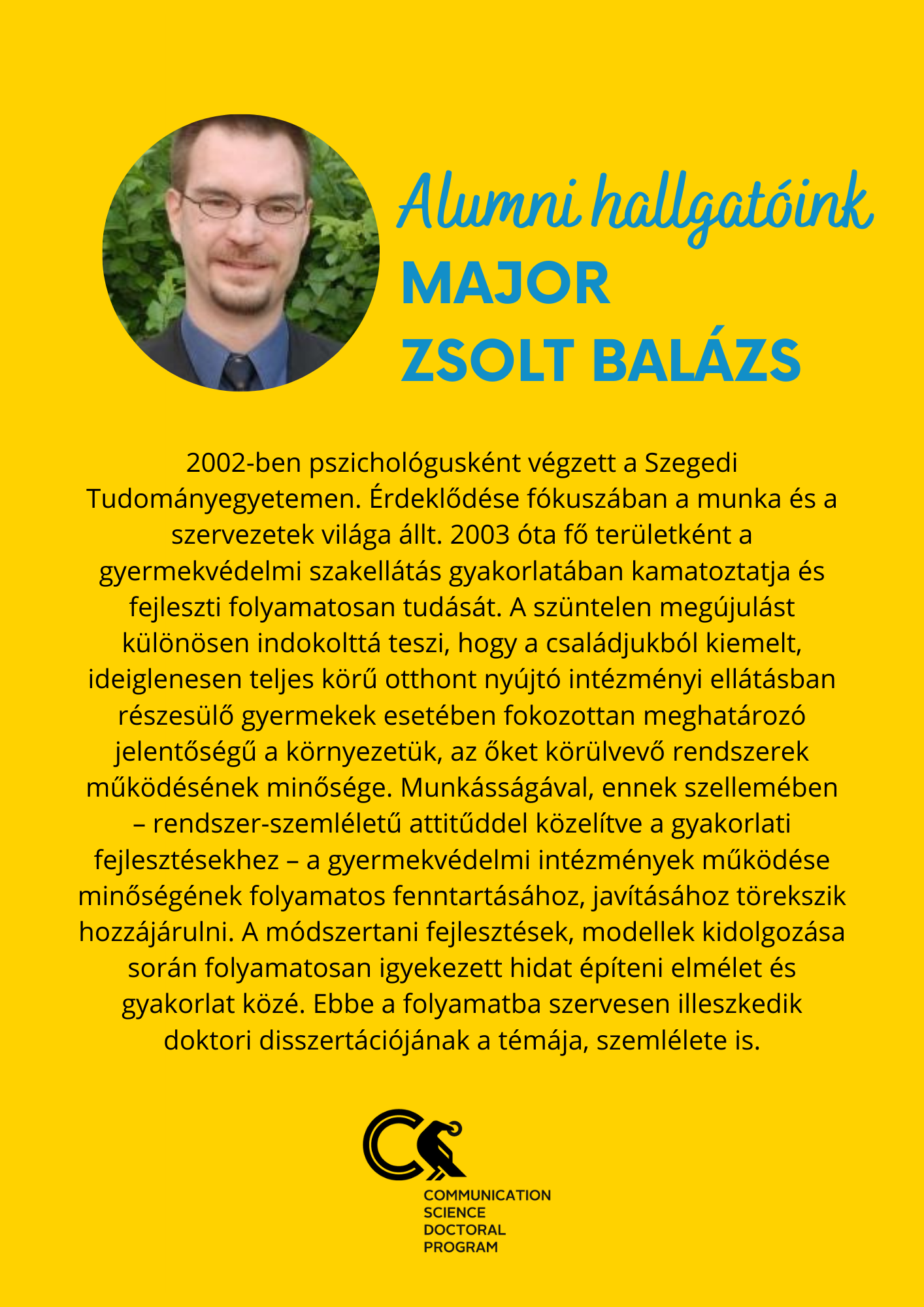
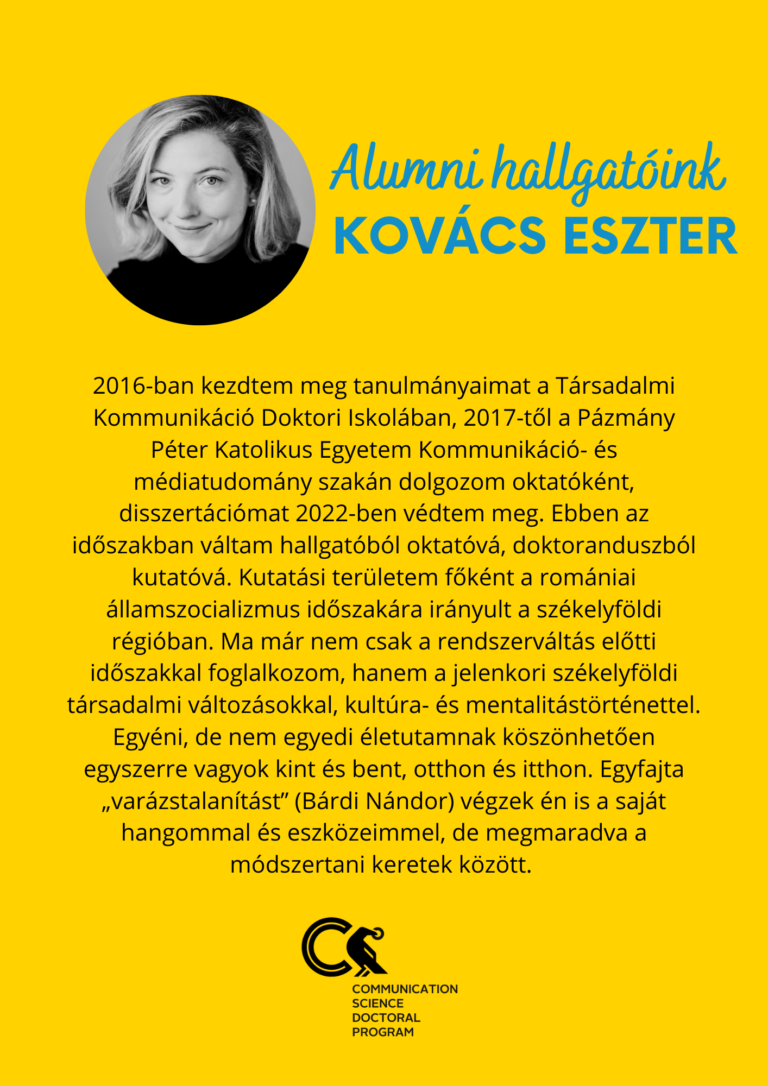
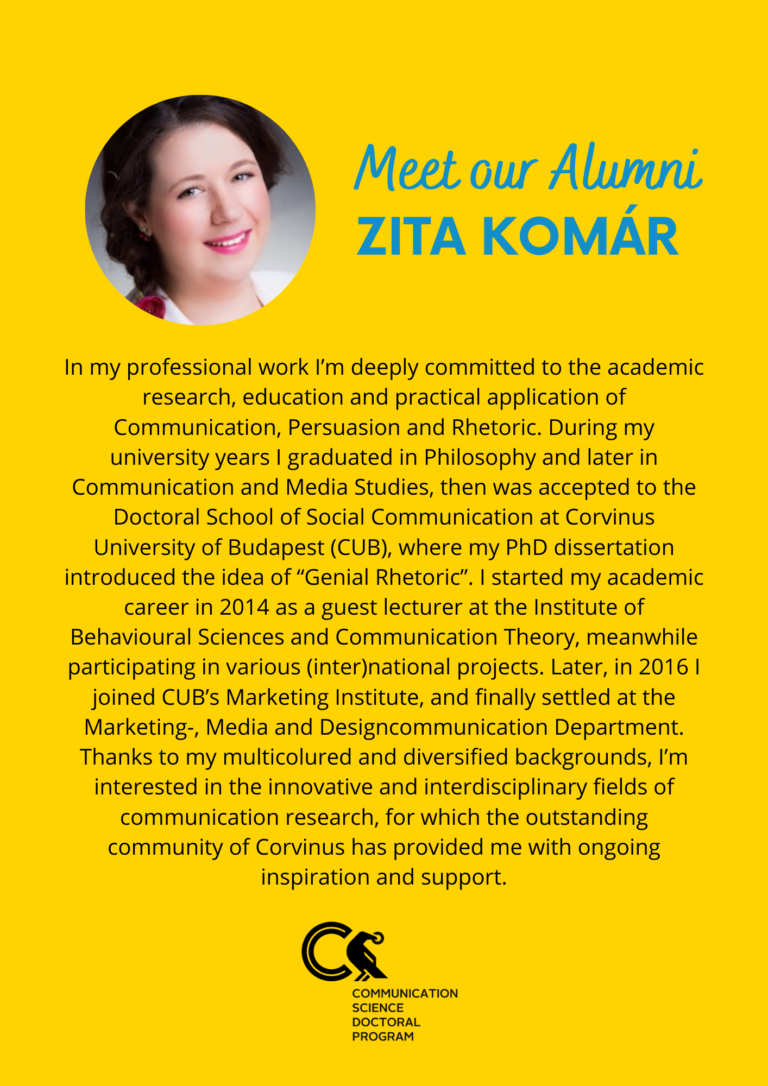
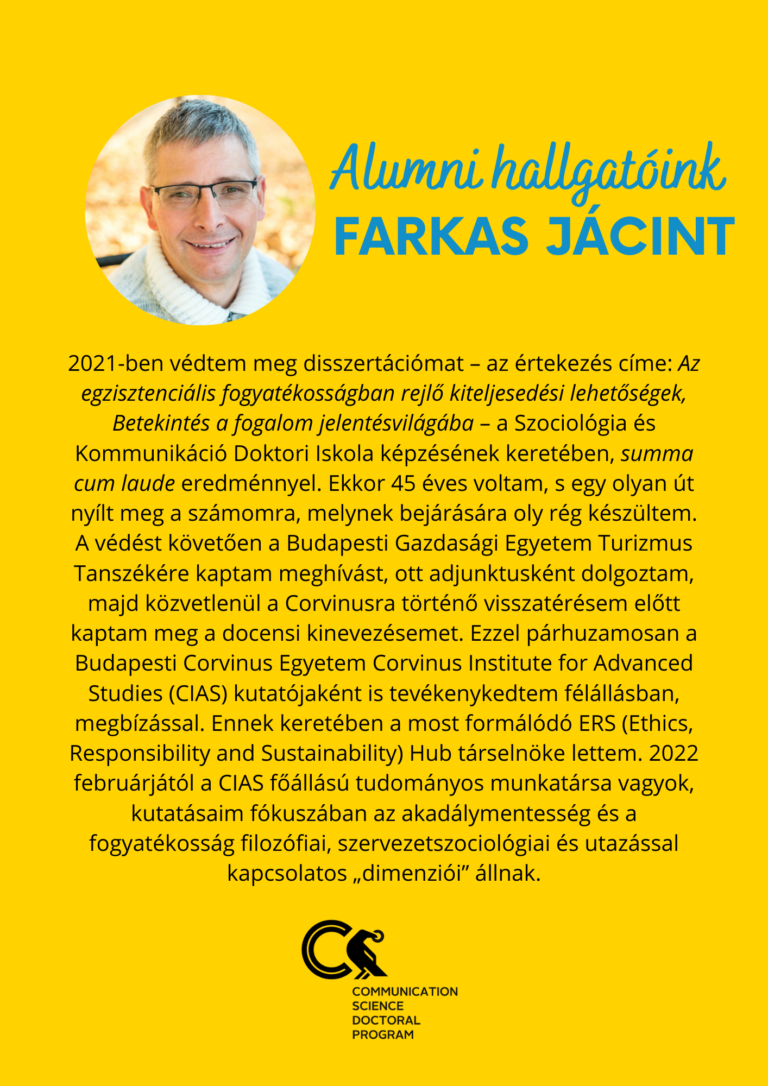
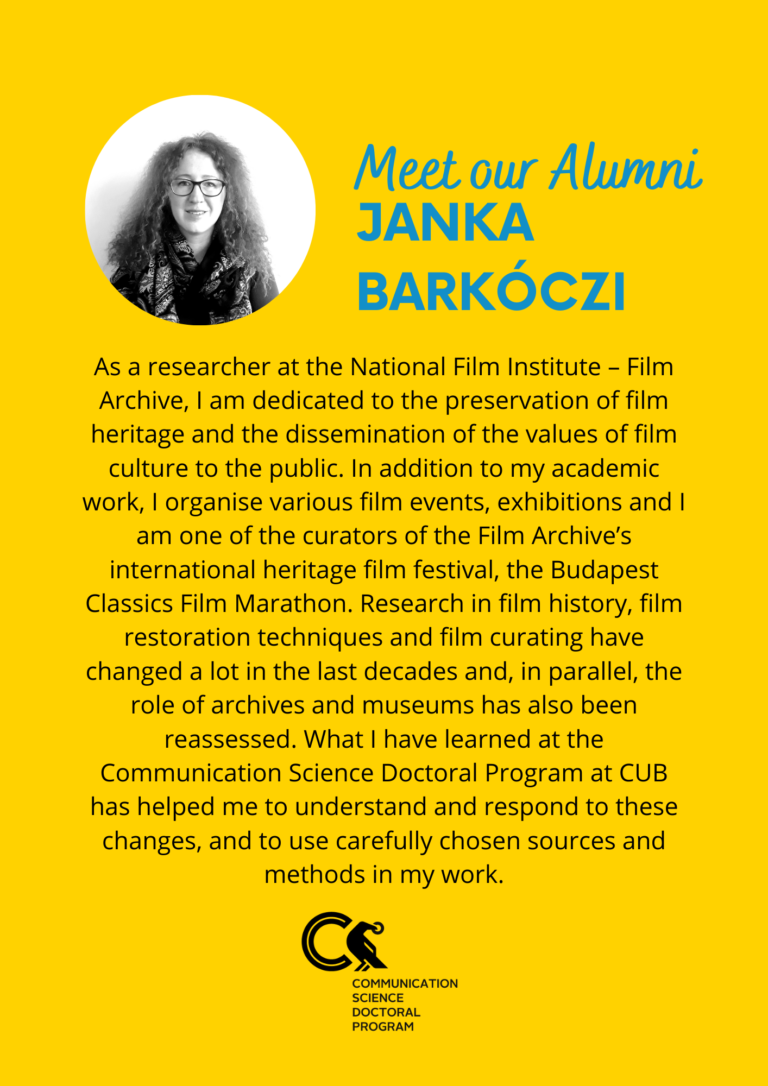
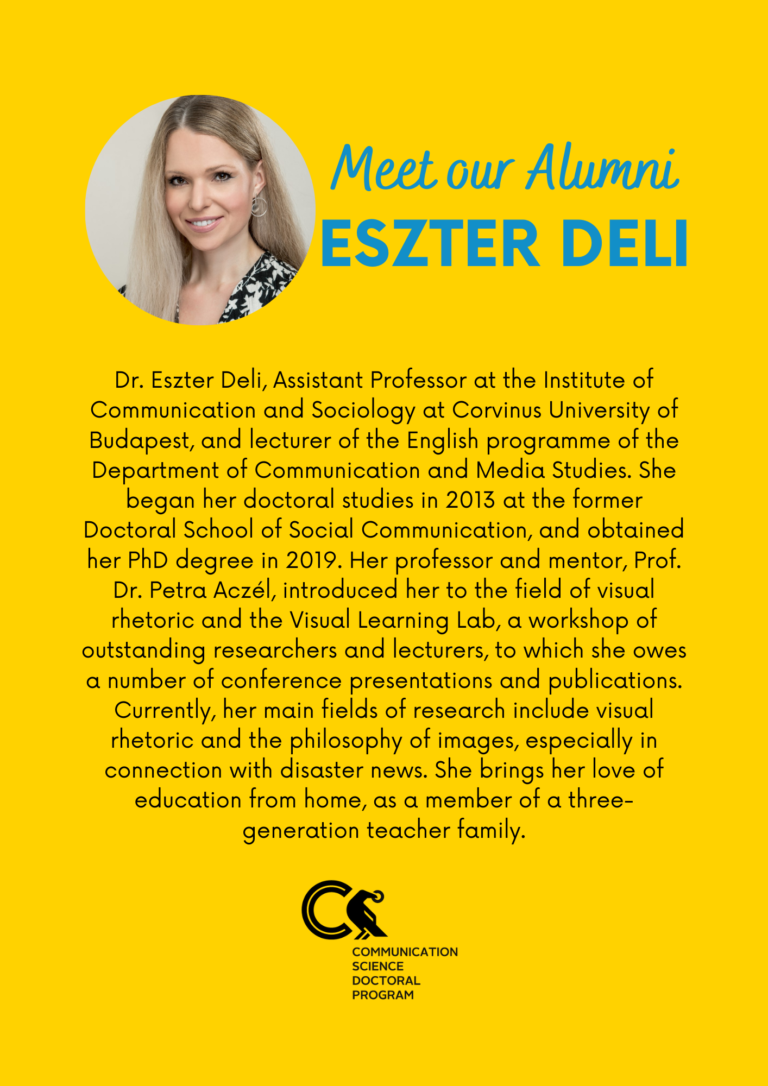
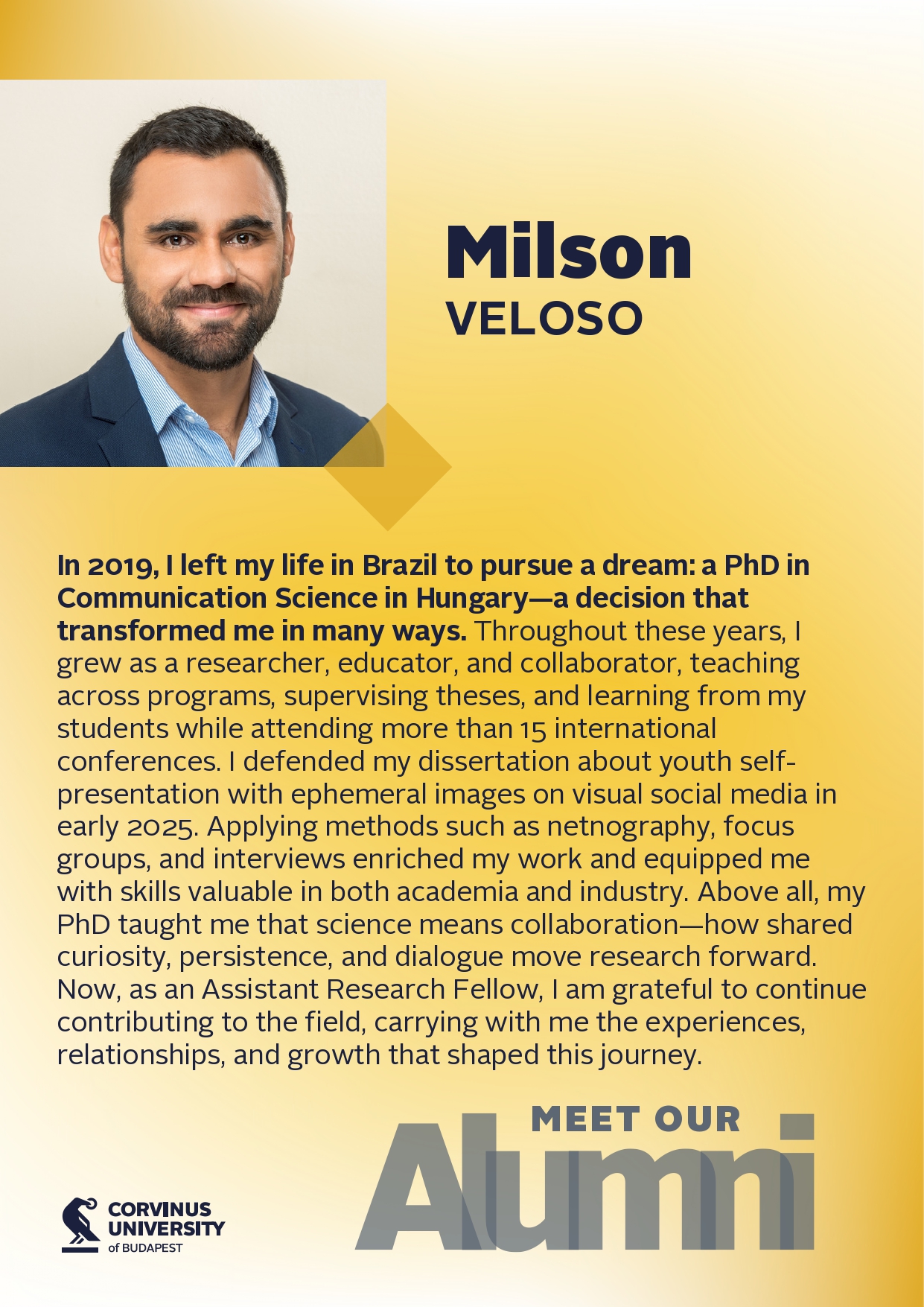
Please make an appointment by email before a personal consultation!
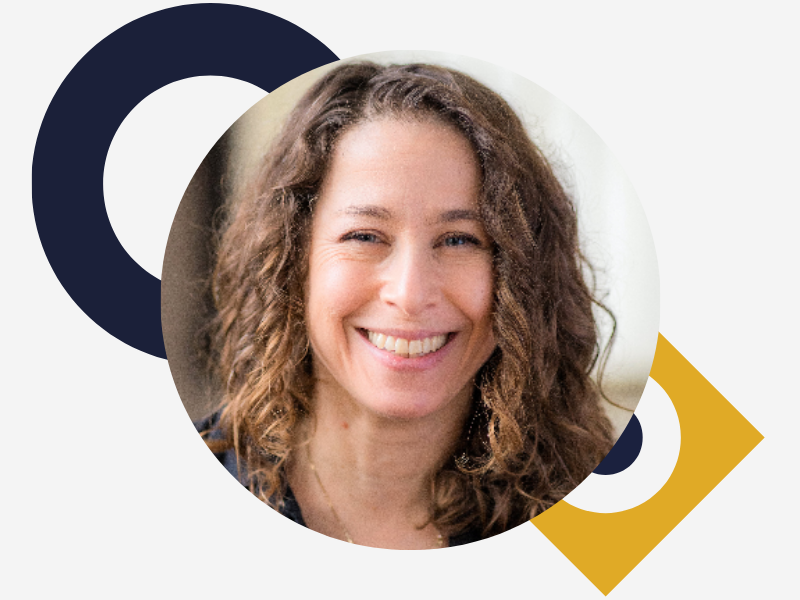
Head of Doctoral Program
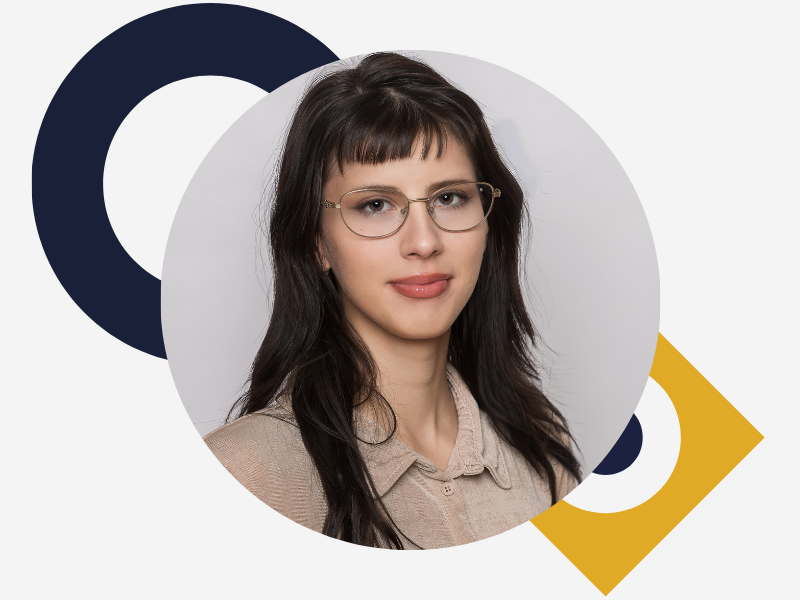
Doctoral Study and Administration Expert

Head of Doctoral School

Doctoral and Habilitation Procedures Expert